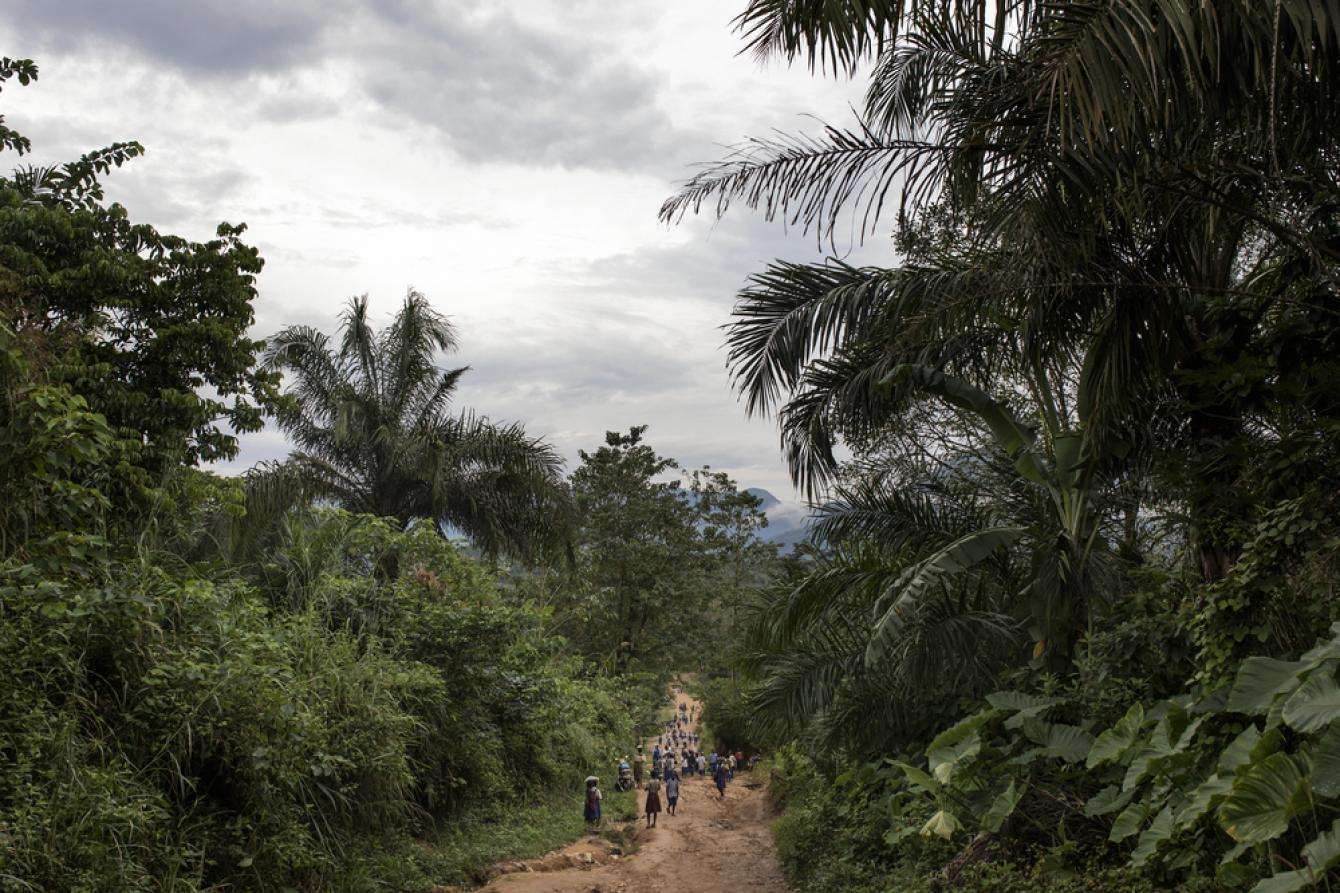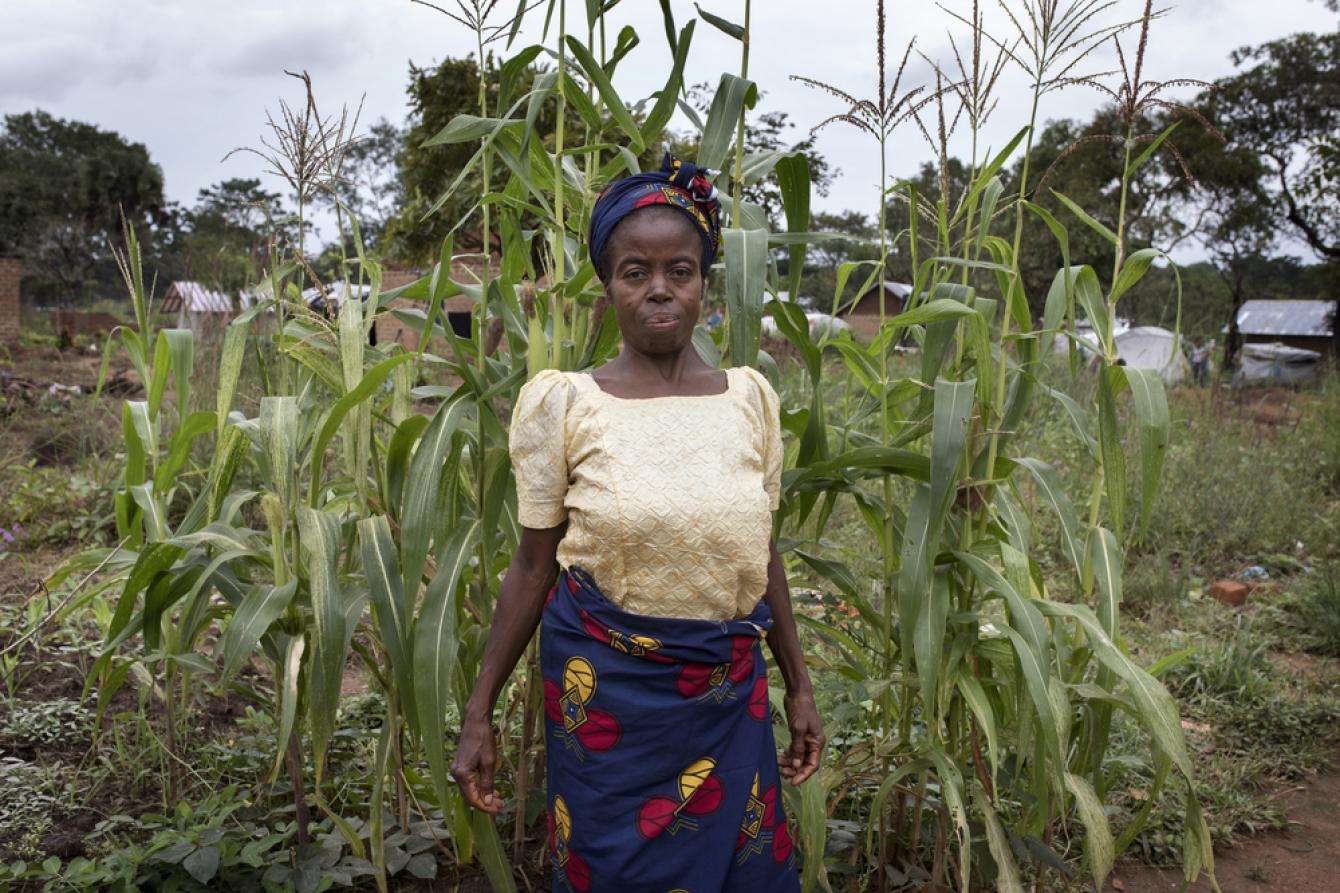A little-known exodus has been taking place for more than a year in western Africa as tens of thousands of people flee the English-speaking regions of Cameroon to seek refuge in southern Nigeria’s Cross River State. Doctors Without Borders/Médecins Sans Frontières (MSF) has launched an emergency response to provide aid to both the refugees and the communities hosting them.
Political disputes in Cameroon’s Southwest and Northwest regions escalated in late 2016. After secessionist armed forces proclaimed an independent state, they were confronted by the National Army. Since then, daily violence has forced thousands to flee their villages to seek refuge and protection in neighboring Nigeria. Despite concerns over the escalating violence, there has been very little aid response by the international community either inside Cameroon, where access for humanitarian groups is severely limited, or in Nigeria.
By the end of November 2018, an estimated 437,000 people were internally displaced within the Southwest and Northwest regions of Cameroon. Most have fled into the bush, where living conditions are poor and there is a lack of adequate shelter and access to food, water, and basic health services. To help meet the medical and health needs of these displaced populations, MSF is strengthening the referral and emergency systems of district health structures in Buea (Southwest Region) and Bamenda (Northwest Region) and developing the capacity of community health workers to provide decentralized care. MSF is concentrating its activities on rural and peripheral areas where peaks of violence prevent large numbers of people from accessing health services.

With an estimated 30,000 refugees also sheltering in Nigeria, in June 2018 MSF launched activities in Cross River State. From July to mid-November, medical teams conducted 3,890 consultations. More than 75 percent of patients we are treating are women, children, or elderly people. Most consultations are for respiratory diseases and skin diseases such as scabies, both related to difficult living conditions in the villages and in the camps where refugees are staying. MSF medical teams are also treating patients for chronic diseases such as hypertension and diabetes and for malaria, which is mostly endemic in the country, in addition to performing surgeries for both traumatic and non-traumatic injuries.
“Like our brothers and sisters”
When the first Cameroonian refugees began to cross into Nigeria, they were completely reliant on the assistance and support of local villagers, whose living conditions were already difficult. Fortunately, because of their geographical proximity and the long-standing ties between them, the refugees received a warm welcome.
Augustine Eka shows his solidarity hosting Cameroonian refugees in his house in the Nigerian village of Amana. “People started to cross into Nigeria, but they didn’t have anything—they didn’t have a place to stay,” says Eka. “So we decided to welcome them, to let them live in our homes like our brothers and sisters. All of the communities here in Cross River State are very hospitable and friendly with the refugees coming from southern Cameroon. During the past year, we’ve hosted more than 100 refugees in my community: men, women, and children.”
Fidelis Kigbor is one of the refugees living in Augustine’s house. He fled Cameroon on October 1, 2017, the day that secessionist forces declared independence. “I lived with all my family in Mamfee, where I was a farmer,” says Fidelis. “I built my house there, but it has been destroyed.”
Fidelis and his family crossed the border. “When we arrived in Amana village, the local inhabitants welcomed us, even if they didn’t have so much to offer,” says Fidelis. He hopes to return to Cameroon when the situation allows, but he knows that it will not be easy. “I would like to go back to my country when things get better, but I know that I have lost everything there,” he says. “I will need help to rebuild my life.”
“We fled from violence”
While some of the refugees are living in the Nigerian border villages alongside local inhabitants, others have been moved into refugee settlements. The settlement in Adagom, run by the UN refugee agency (UNHCR), was constructed in mid-August 2018. As of early December, more than 6,400 people are staying there.
Gmoltee Bochum, 31 years old, sits outside his tent with his two-year-old child, Sema. “Back in Cameroon, I lived in Bamenda, one of the biggest cities in the Anglophone region,” he says. “I was a computer engineer and a teacher. I don’t know when violence will end, but I know that I lost everything. Now I live with my family in this refugee camp, but life is tough. We all live together in a very small tent.”
MSF doctor Precious Mudama says that people’s needs in Cross River State are enormous. “Prior to MSF’s intervention in Cross River State, there were overwhelming needs in the health sector,” says Mudama. “There was big pressure on the state’s health care system, and a lack of staff and materials to take care of the local and refugee population. Our intervention was timely and we are now meeting those medical needs with our mobile clinic activities. The medical teams are seeing an average of 120 to 150 patients per day, with an average of 80 percent refugees and 20 percent members of the host communities.”

Lydia, 40, is a Cameroonian refugee sheltering in Adagom settlement. She lost her brother and two sisters as they fled Cameroon. She now lives in a tent with her sick husband and their six children. She saw an MSF doctor when she fell ill, and believes that otherwise she might have died. “I felt sick for a long time, with bad abdominal pains,” says Lydia. “When I arrived in Adagom camp, I heard that MSF was helping people with free health care. Therefore, I decided to meet the doctor and get some help. They visited me and then referred me to the hospital without asking for any money. Without MSF’s help, I would probably have died, but now I feel much better and I’m back in the camp with my family.”
In addition to providing medical assistance, MSF water and sanitation teams have rehabilitated 27 hand pumps, dug four boreholes, and constructed 52 latrines in villages where both locals and refugees are living.
MSF’s Cross River Project began with water and sanitation activities in Obanliku and Boki Local Government Areas (LGAs), namely boreholes and latrines. Medical activities started in the last week of July 2018, with an outpatient clinic at the Comprehensive Health Center (CHC) in Ikom to serve both the host and refugee community. MSF now operates six mobile clinics in Obanlinku, Boki, Ikom, Ogoja, and Etung LGAs. From late July to mid-November our teams conducted 3,890 consultations.
Within the Southwest and Northwest regions of Cameroon, MSF supports district health centers and hospitals in Buea and Bamenda to strengthen their referral and emergency systems. We established ambulance services, donated medical and logistical supplies, and prepared mass casualty plans in several health facilities. MSF also provides training and capacity-building to community health workers to support them in providing decentralized models of care, and runs mobile clinics in Buea and Bamenda.




